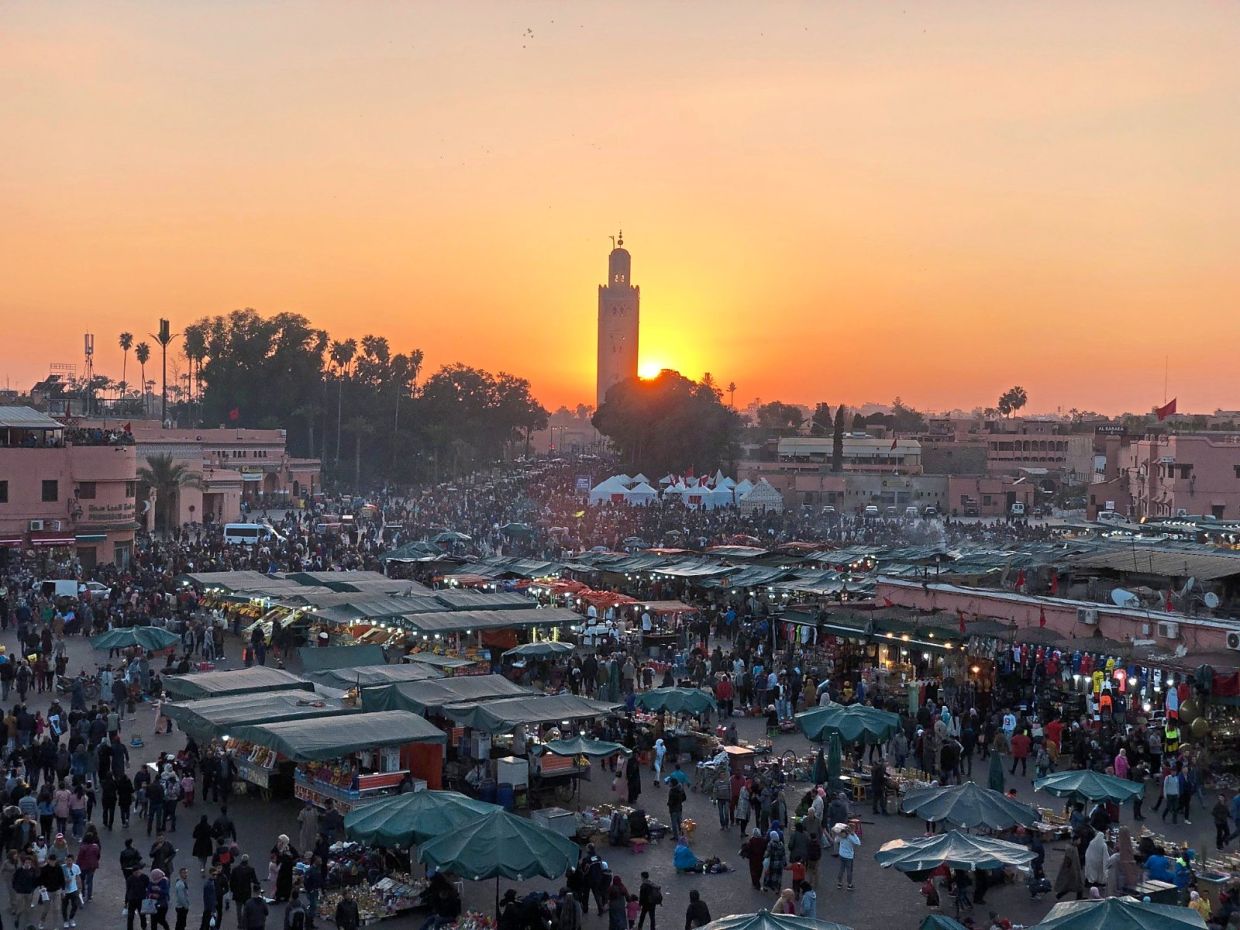
Sunset at Djemaa-el-Fna square in Marrakesh. — Five Travel
During a dinner dialogue with some diplomats many years ago, I asked these well-travelled people to name their favourite cities and countries.
Half of them named Morocco, with Marrakesh as their most preferred city.
That was almost three decades ago when I was covering the foreign ministry as a reporter.
Having travelled to more than 60 countries for work and holidays, I finally made it to Morocco. I criss-crossed this country for eight days, with my sojourn extending beyond Marrakesh and Casablanca.
The diplomats were right. I don’t know why it took me so long to visit this north African nation, which overlooks the Mediterranean Sea to the north and the Atlantic Ocean to the west.
Perhaps I didn’t take the views of those diplomats seriously, but I never forgot their preference. It’s never too late, as the adage goes.
Morocco isn’t just about deserts and camels, as most of us would imagine of Arab nations. From deserts to snow-capped mountains to sea sides, Morocco is truly a land of contrast.
And the breadth of its culture stretches from belly dancing in Marrakesh to deeply religious Berber folk in rural villages, to women who dress up and look like fashion models in Rabat, the capital of Morocco.
I chose February for the journey since it’s viewed as a low season. The peak period is the yearend, but by February, the holidays are over. And the winter period would also be at its tail end.
Apart from avoiding the crowd, it was simply so that I could get a reasonably priced air ticket and accommodation.
After having worked out my budget, I decided that signing up for a group tour was the most cost-effective way to go. Never mind if it meant getting up at 6.30am every day and spending hours on the bus to reach the next city.
I have long believed in being a digital nomad, so I carried my laptop and used a local SIM card for my mobile.
My first stop, after arriving in Casablanca, was Marrakesh. It was exactly everything that I had expected and imagined.
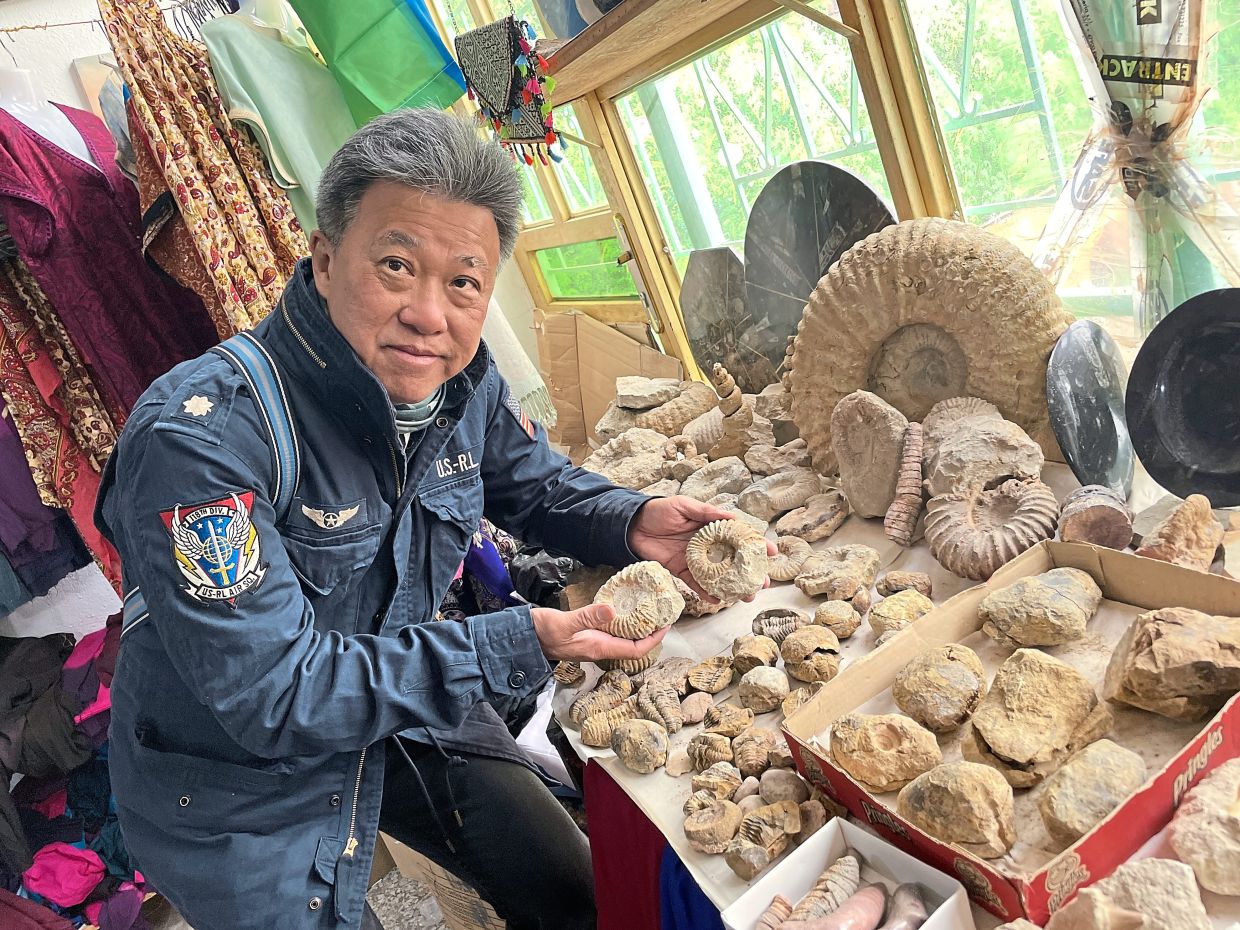
The writer checking out some fossils in Ouarzazate, Morocco. — Photos: FLORENCE TEH
Sitting in a café and sipping my mint tea, I soaked in the atmosphere of the sprawling Jemaa el-Fna square with its snake charmers, fortune tellers, story tellers, acrobats and men attached to macaques chained by the neck.
My advice – ignore these people who exploit animals for money. Exotic as all these may seem, I don’t think they deserve 20 dirhams (RM10) for a photo opportunity.
The rule here is, never look interested and don’t even start a conversation because these snake or monkey men can be pushy.
But all these aside, the medina, or the meeting place of an old-walled part of North Africa, is indeed a sight and experience.
It’s a cliché I tell young reporters to avoid, but I’m going to use it here. It was indeed like a setting from an Indiana Jones movie, Raiders Of The Lost Ark, to be precise.
I continued my trip to another medina in Fez, which is regarded as the largest living medieval town in the Arab world.
The guide kept reminding the undisciplined Malaysians that if we didn’t follow him closely, we could be lost in the labyrinth of 9,000 alleyways and narrow streets, which dates to the ninth century.
These souks are pleasantly chaotic, with the delightful scents of spices and perfume lingering in the air.
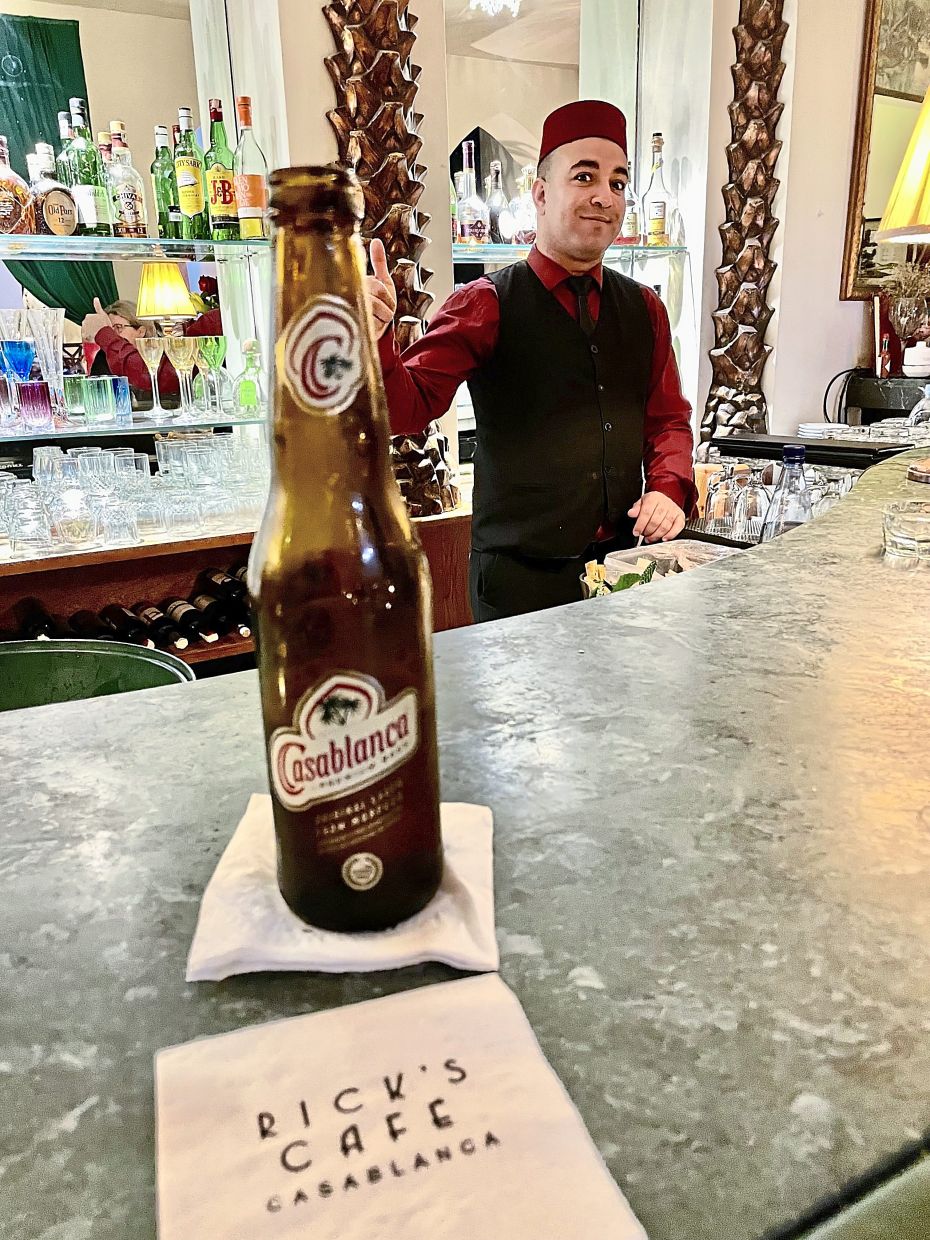
Inside Rick’s Cafe in Casablanca.
The alleys are packed, and I held on dearly to my phone and wallet. As we jostled for space, we sometimes had to make way for the unexpected passing of mules, which are still being used as a form of transportation.
Many of the locals, dressed up in their hooded jaballah (robes), worked as artisans and craftsmen.
They appeared as if they were locked in another time – a lost time. I saw a comb maker meticulously creating his product from sheep and cow horns.
These are more than pieces of art, but I wondered if he would earn enough money to feed his family.
Nestled in the medina is the world’s oldest university, the al-Qarawiyyin, which was founded by Tunisian woman Fatima al-Fihri in 859 and officially recognised by Unesco.
I must confess what an ignorant fool I’ve been thinking that the old universities must be in Europe or China, not knowing the existence of this famous institution.
This turned out to be one learning expedition. I headed to the desert town of Ouarzazate and found out that the deserts – where I did the customary touristic camel ride – used to be an ocean.
Fossils of trilobites, ammonites and other prehistoric life are plentiful here, proving that the deserts were, indeed, once ocean floors. These 250-million-year-old relics are found in abundance and on sale in government certified shops, if you seek authenticity.
We stopped at Chefchaouen, renowned for its iconic, blue-coloured stairs, buildings, sidewalks and structures. These are certainly one of the most photographed places on Earth.
Framed against the backdrop of the stunning Rif Mountains, I had mistakenly believed the blue stairs were in Marrakesh.
In any case, how does one remember the name of a town like Chefchaouen, let alone pronounce it correctly?
The final stop was Casablanca, a city which evokes nostalgia and romance, ably aided by the 1942 romantic thriller of the same name starring Humphrey Bogart and Ingrid Bergman.
A poster of that movie has been on my library wall for decades. My wife and I had only one night in Casablanca, but we were told by the tour guide that Rick’s Café – the recreation of the famous restaurant from the film – was fully booked.
But that wasn’t going to stop us from having a drink, at least, at this gin-joint, dreaming of a black pianist playing As Times Goes By in the background. It wasn’t smoke filled, like in the movie, and there was only Arabic folk music playing. I was told that they often have jazz sessions, too.
A resourceful phone call to a Moroccan friend, Imane Sakhi of Five Travel agency, who seems to be able to connect anyone to everything, got us two seats at the bar – so I had my local brew, the Casablanca.
One lasting impression of the trip was the visit to the beautiful ancient fortress village of Ait-Ben-Haddou, located 30km from Ouarzazate.
This kasbah, the sprawling settlement of the Berbers, sits on the foot of a cliff, and it will immediately “evoke in the visitor a sense of having travelled back,” as one writer aptly described the country’s most famous kasbah.
The red earthen fort has been the location of numerous movies including The Mummy, The Gladiator, The Jewel Of The Nile, The Prince Of Persia and more recently, Game Of Thrones.
This ancient oasis town used to be an old caravan route running between the Sahara and Marrakesh.
But today, it’s one of the star attractions for tourists from around the town, who are guaranteed a spellbinding experience.
I will certainly return to Morocco again, because I’ve fallen in love with this country, where its people have no hangups and are so easy going.
Each morning I was greeted with the customary assalamualaikum, which means peace be upon you, and I was expected to reply walaikumsalam, which means peace also be upon you.
I didn’t have the heart to tell my guide that as a non-Muslim living in Malaysia, I’m not obliged to use that greeting.
They are such lovely people with broad cosmopolitan views and yet, retain their religious and cultural identities and beliefs.
In my own take of the famous line from Casablanca where Ingrid Bergman tells the pianist, “Play it again, Sam,” I’ll simply say, “I’ll be back.”
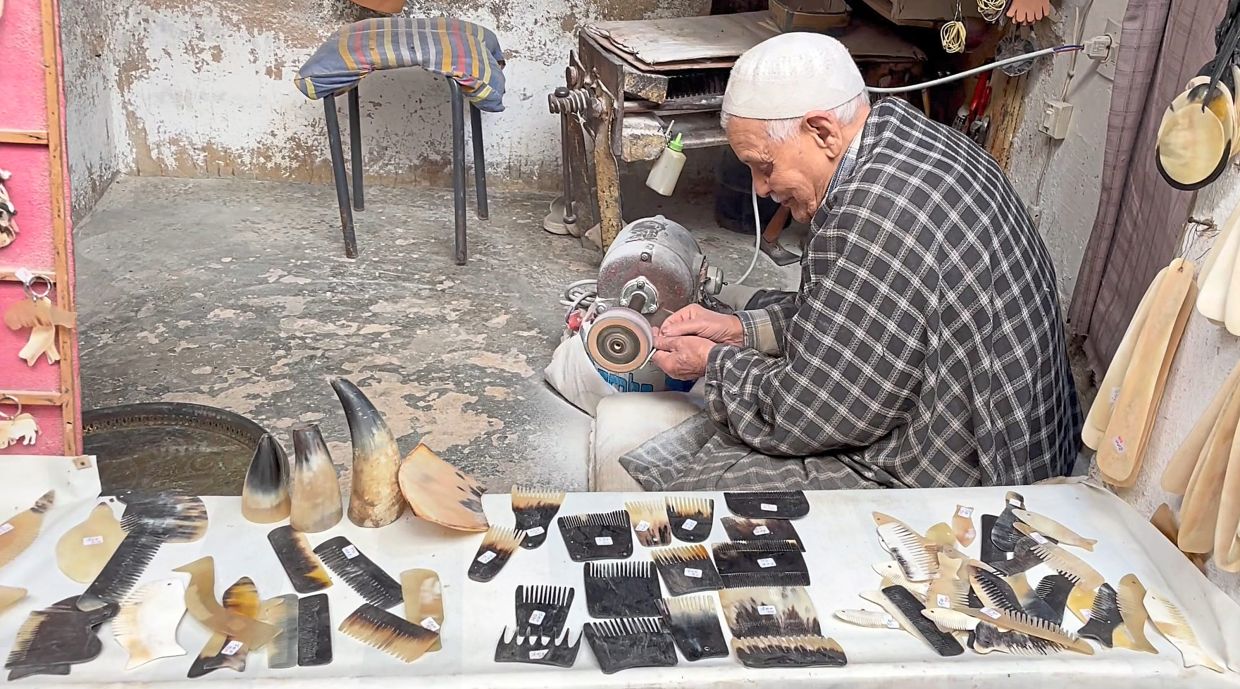
Dying art: A man making combs from lamb and cow horns at Fez medina. — Photos: FLORENCE TEH
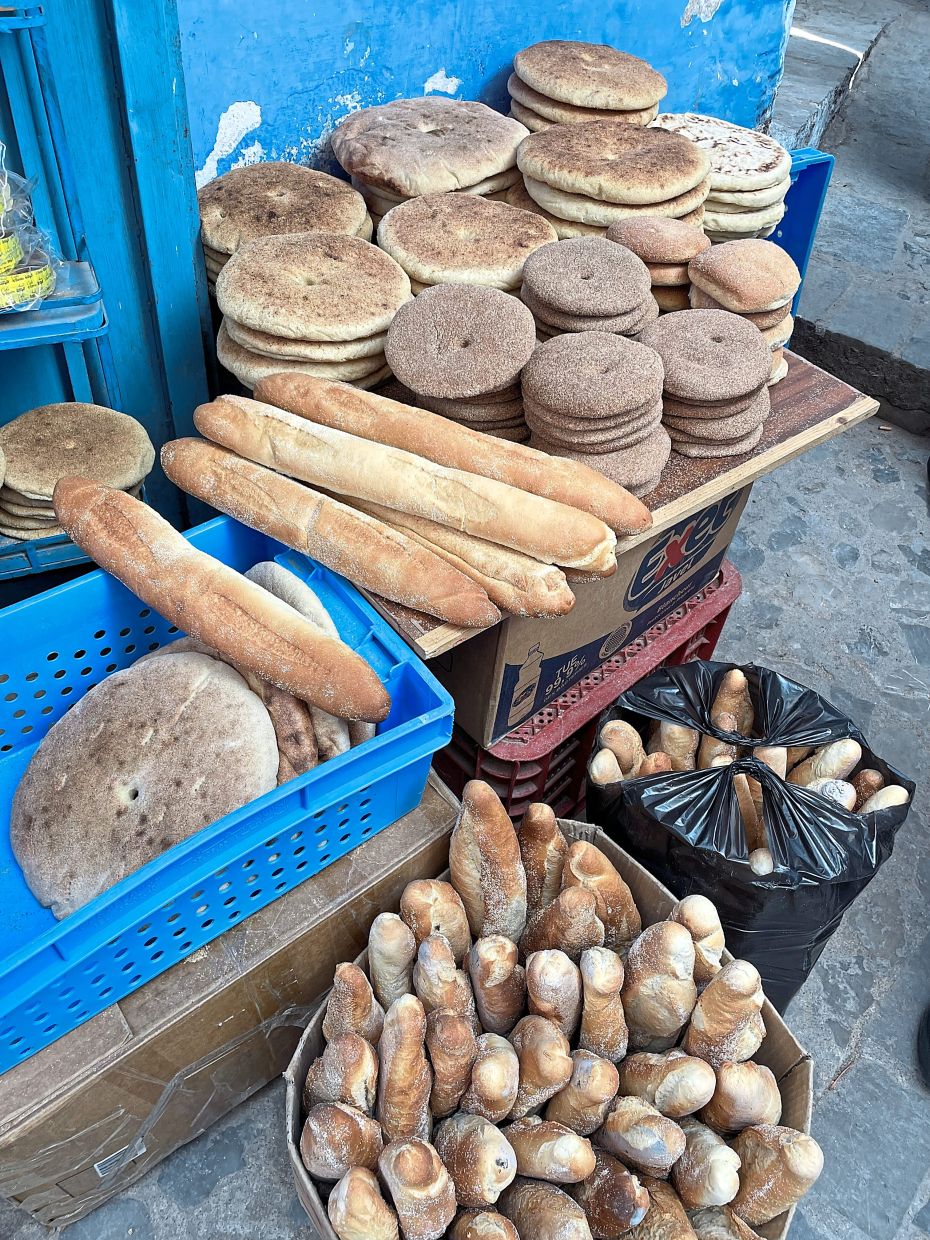
All kinds of bread for sale in Chefchaouen, Morocco.
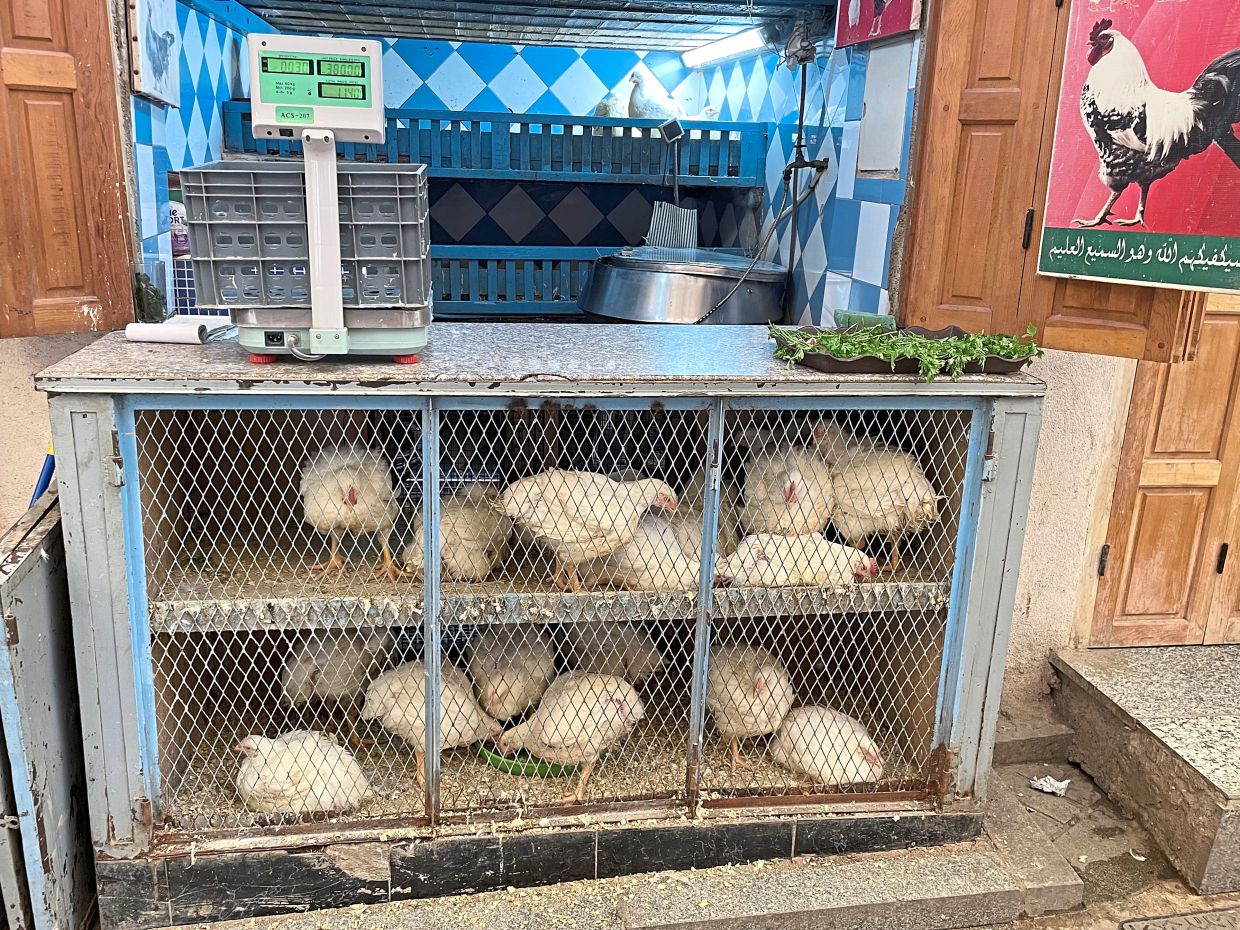
Folks at the Fez medina are still selling chickens the old-fashioned way.
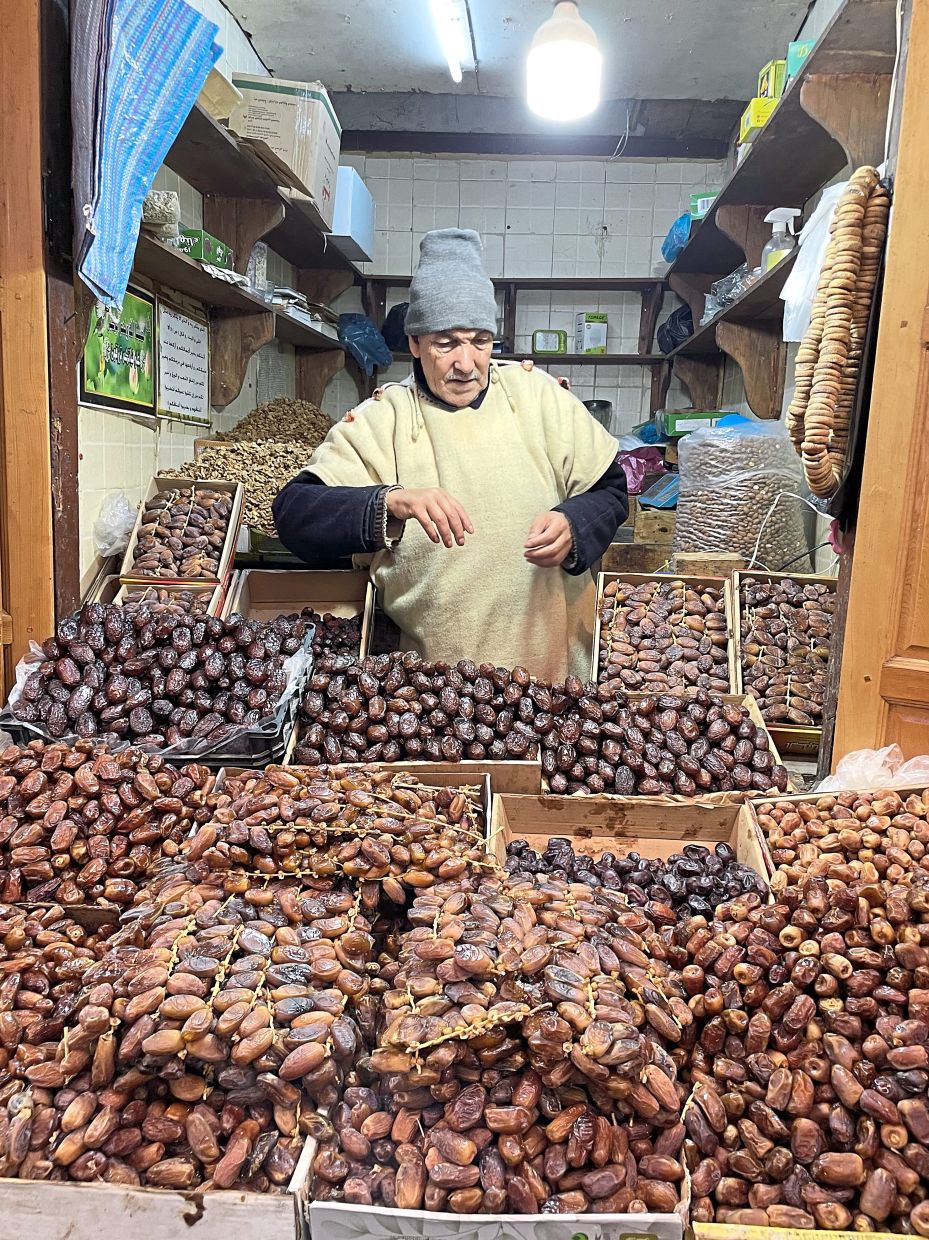
You can buy many varieties of dates at Fez.
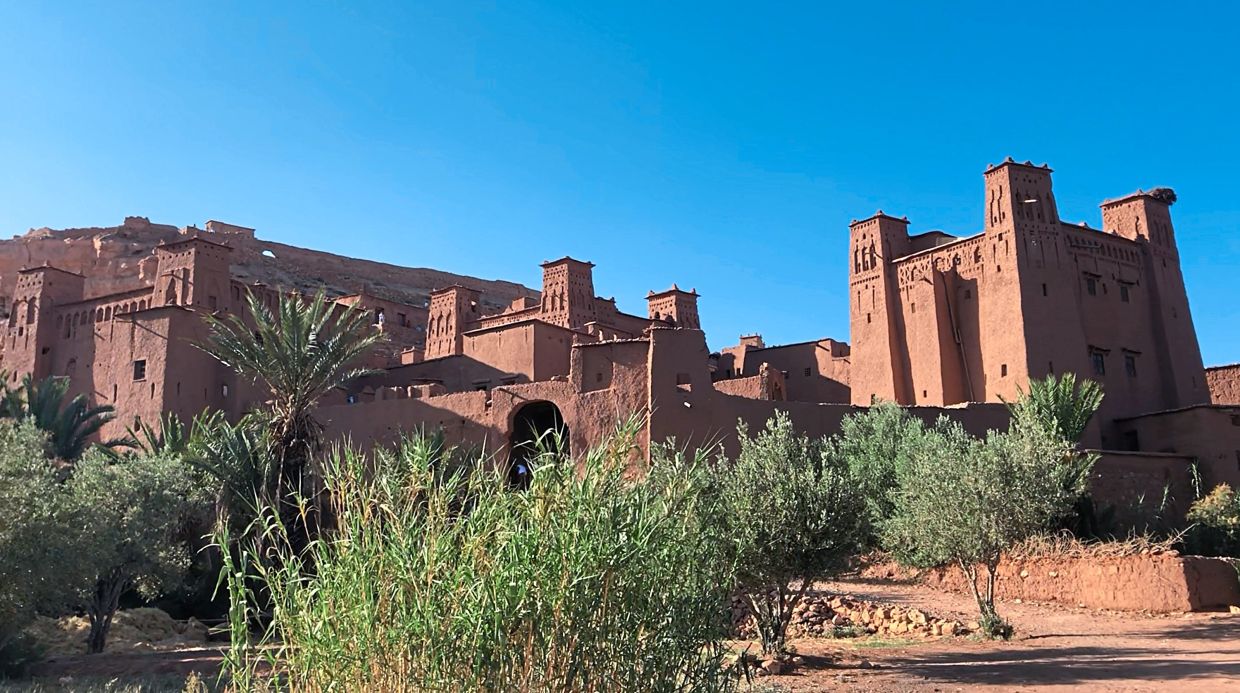
Ait Benhaddou in Ouarzazate is a Unesco Heritage Site. — Five Travel
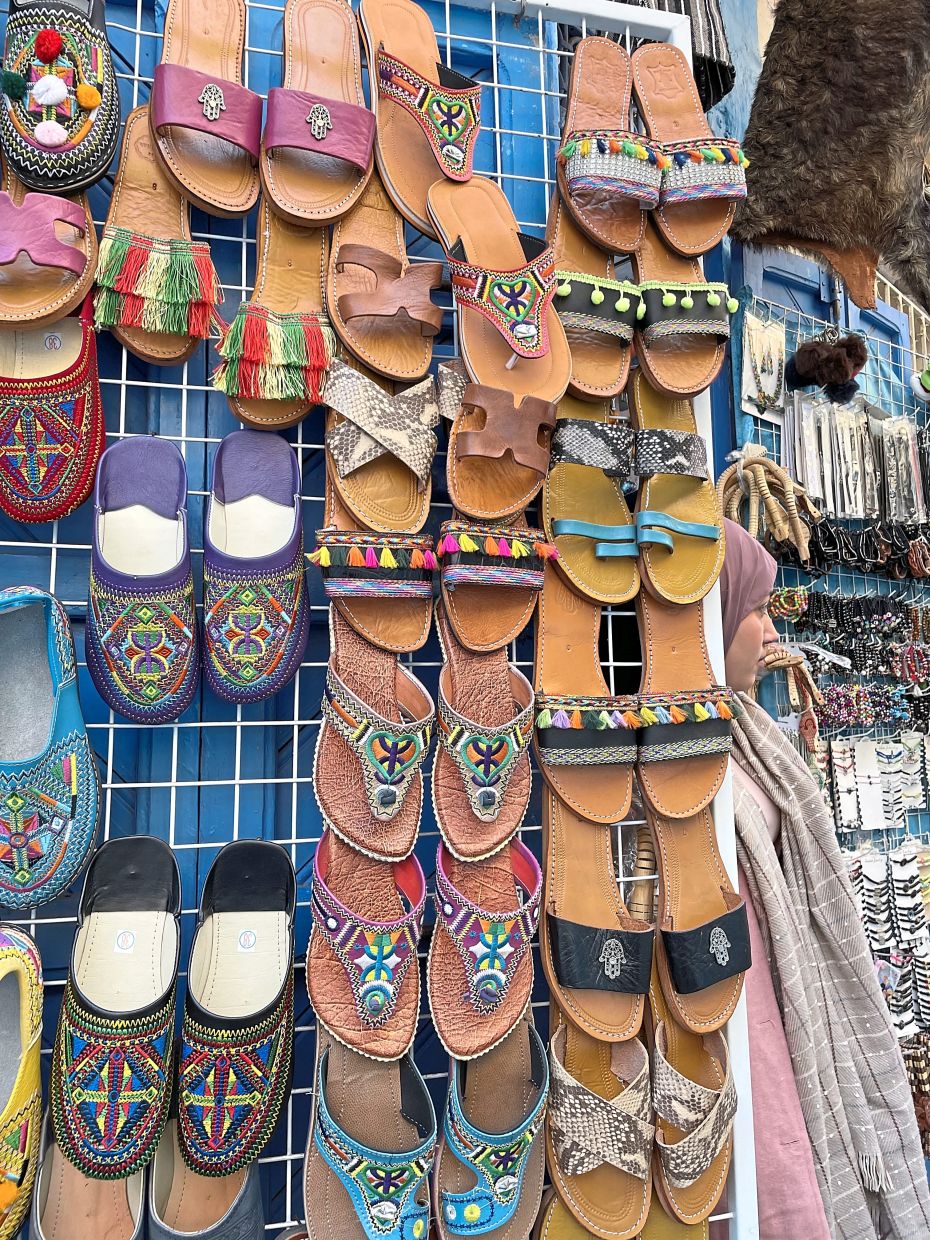
Fanciful shoes on sale at Chefchaouen, Morocco.
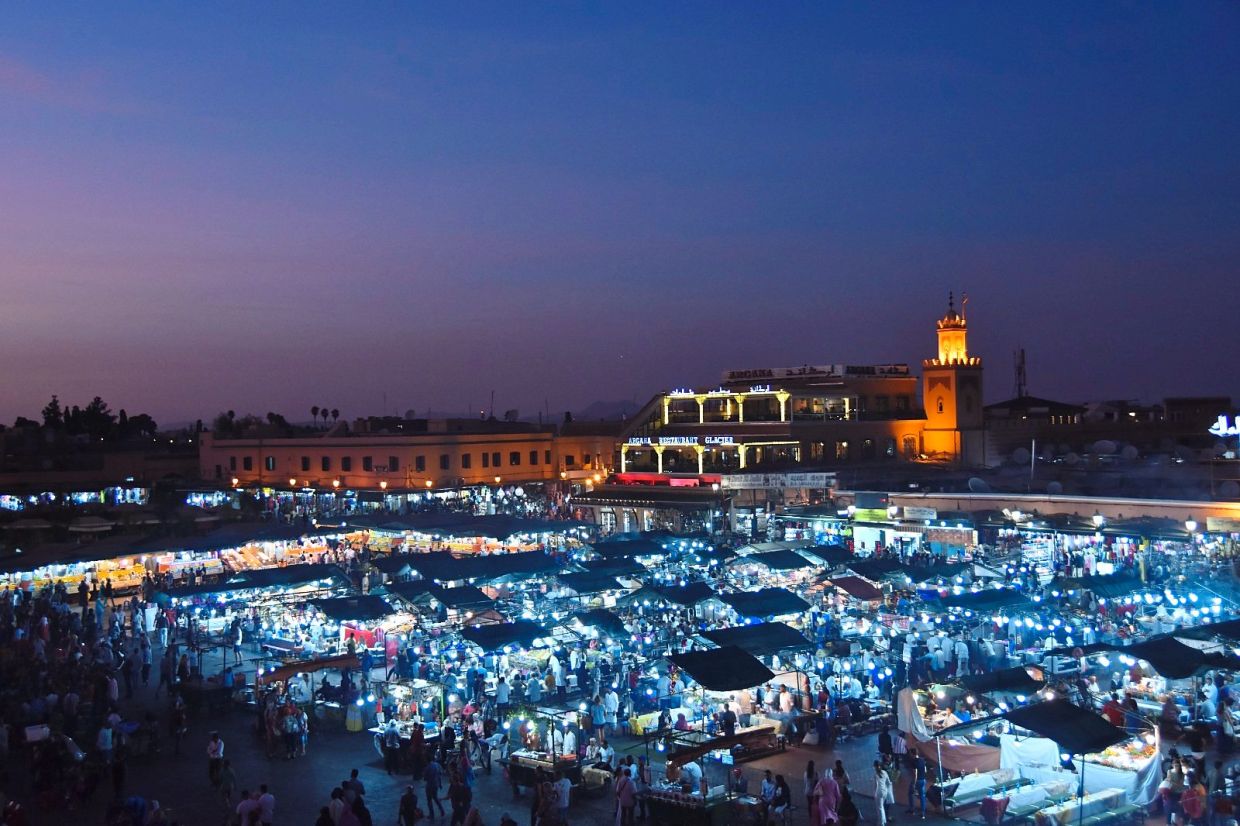
Night view of the Djemaa-el-Fna square in Marrakesh. — Five Travel
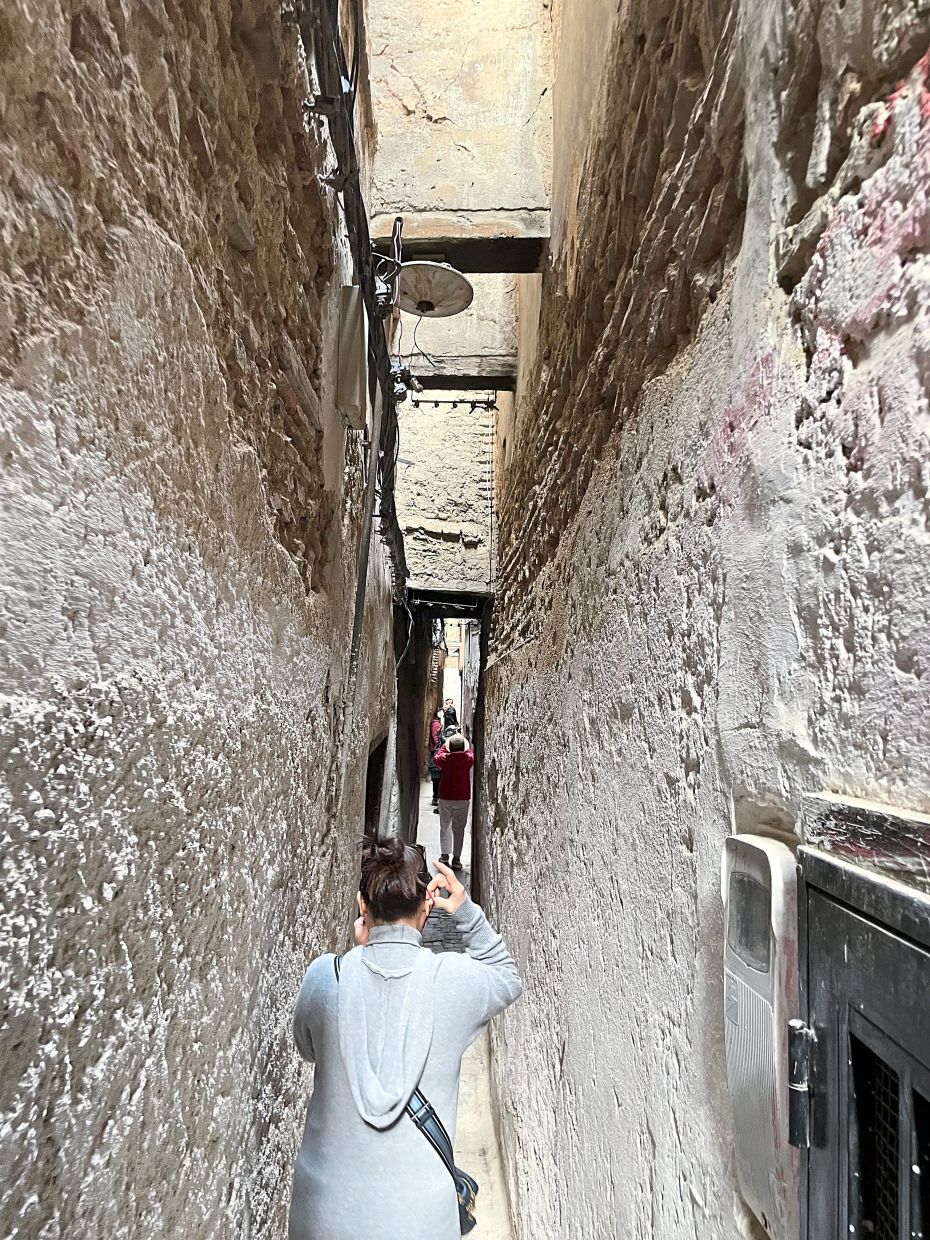
One of the 9,000 alleys of Fez Medina.
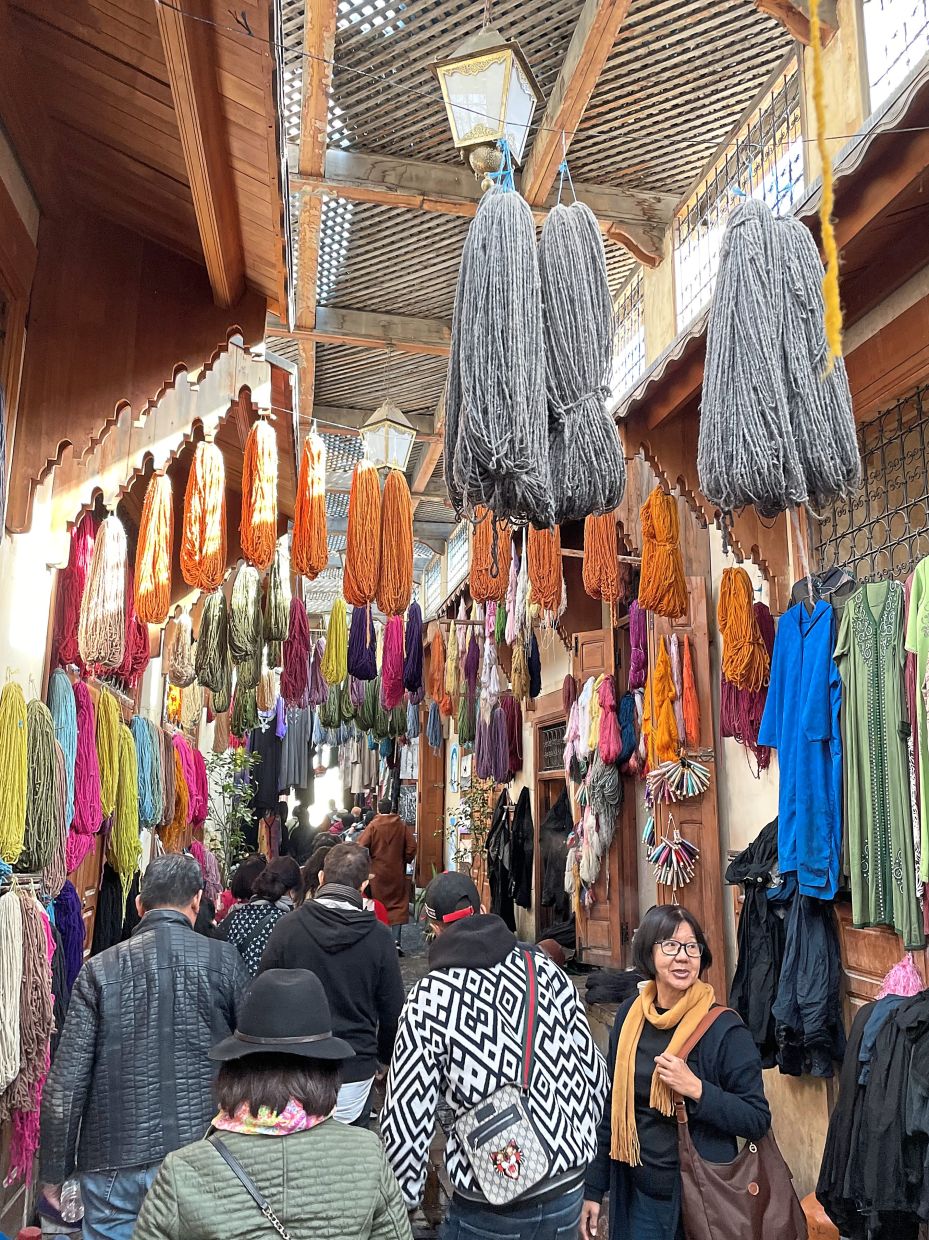
A tannery at Fez, where some of the best leather goods can be found.
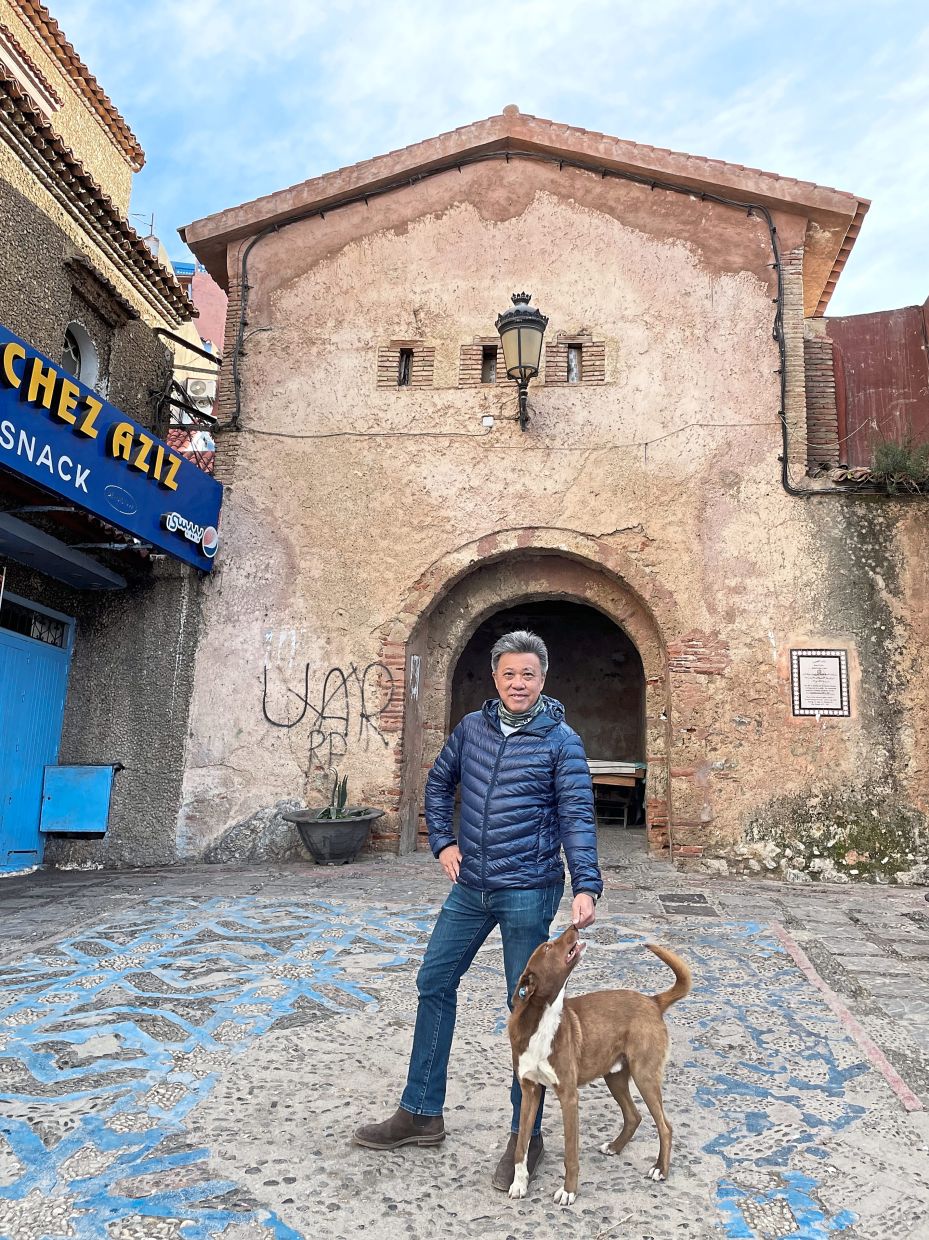
The writer at the entrance of the Chefchaouen market square.





